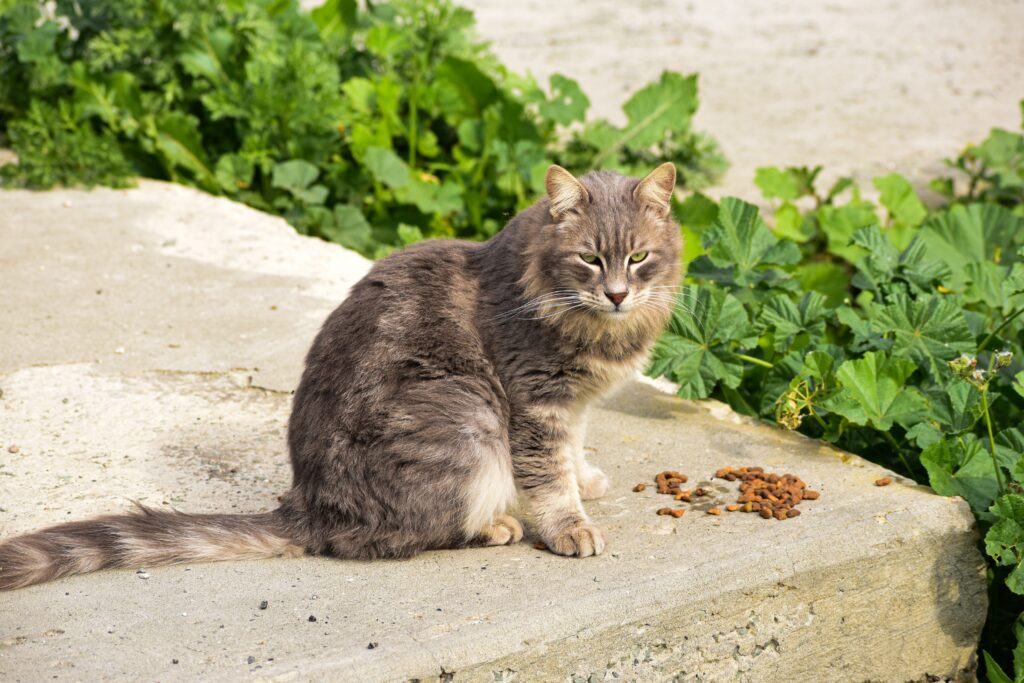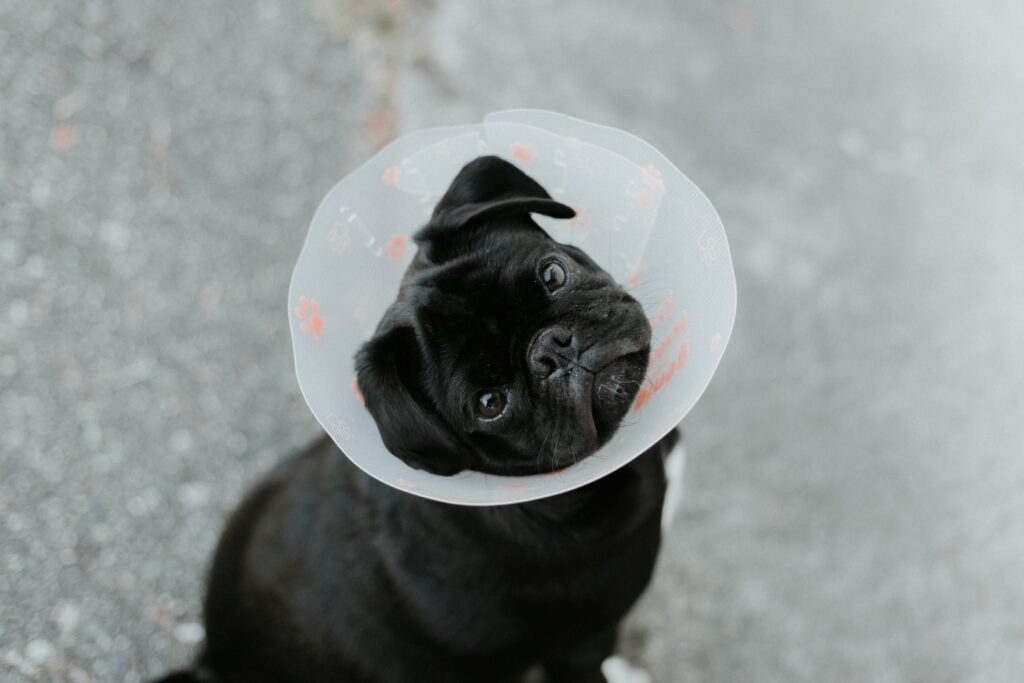
Have you ever wondered how spaying or neutering can impact a cat’s behavior? It turns out that this common procedure can have a significant influence on a feline’s behavior and personality. Not only can it help reduce aggressive behaviors, such as territorial marking and fighting, but it can also decrease certain hormonal tendencies that may lead to roaming and excessive vocalization. In this article, we will explore the various ways that spaying or neutering can positively impact a cat’s behavior, making them happier and more content companions.
Table of Contents
Physical Effects of Spaying or Neutering
Changes in Hormone Levels
When a cat is spayed or neutered, their hormone levels are significantly affected. In male cats, neutering removes the source of testosterone, which can lead to changes in behavior and overall physical development. In female cats, spaying eliminates the production of estrogen, progesterone, and other reproductive hormones.
Prevention of Certain Health Issues
One of the main benefits of spaying or neutering a cat is the prevention of certain health issues. For male cats, neutering greatly reduces the risk of testicular cancer and may also lower the likelihood of developing prostate problems later in life. In female cats, spaying eliminates the risk of uterine infections and greatly reduces the chances of mammary gland tumors.
Potential Weight Gain
It’s important to be aware that spaying or neutering can potentially lead to weight gain in cats. This is often due to changes in metabolism and hormone levels. After being spayed or neutered, cats may experience a decrease in activity levels and an increase in appetite. It is crucial for cat owners to monitor their cat’s diet and provide regular exercise to prevent obesity.
Effects on Male Cat Behavior
Reduced Roaming and Spraying
Neutering male cats has a significant impact on their behavior, particularly in terms of roaming and spraying. Unneutered male cats are more likely to roam in search of a mate, which can lead to territorial disputes and encounters with other animals. They may also spray urine to mark their territory. However, after being neutered, male cats are less likely to engage in these behaviors, making them more content and less likely to roam.
Decreased Aggression
Neutering male cats often results in a decrease in aggression. Testosterone is a hormone that contributes to aggressive behavior, and by removing the source of testosterone through neutering, the likelihood of aggression in male cats is greatly reduced. This can make them more tolerant of other cats and animals, leading to a more harmonious household.
Less Vocalization
Neutered male cats tend to exhibit less vocalization than their unneutered counterparts. Unneutered males may yowl or howl loudly to attract mates or establish their territory. However, neutered male cats are generally quieter and less prone to excessive vocalization, creating a more peaceful and serene environment.

Effects on Female Cat Behavior
Elimination of Heat Cycles
One of the significant behavior changes in female cats after being spayed is the elimination of heat cycles. Female cats go into heat periodically, which involves yowling, restlessness, and potentially attracting male cats. This behavior can be quite disruptive and stressful for both the cat and the owner. By spaying female cats, their heat cycles are completely eliminated, leading to a more calm and stable temperament.
Decreased Aggression
Spaying female cats can also result in a decrease in aggression. During heat cycles, female cats can become more territorial and aggressive towards other animals, including other cats in the household. However, by spaying them, the hormonal changes that drive this aggression are eliminated, promoting a more peaceful and harmonious environment.
Reduced Marking Behavior
Another behavior change in female cats after spaying is a reduction in marking behavior. Unspayed females may spray urine or exhibit territorial marking, particularly during heat cycles. This behavior can be quite challenging to manage and clean up. However, by spaying female cats, the need to mark territory is greatly diminished, leading to a cleaner and more hygienic living space.
Age Considerations for Spaying or Neutering
Early Spaying/Neutering
There is ongoing debate about the best age to spay or neuter cats. In many cases, it is recommended to spay or neuter cats at a young age, typically around 6 months old. Early spaying or neutering can help prevent unwanted litters and certain health issues. However, there are also arguments for delaying the procedure, especially in large breed cats, to allow for proper growth and development.
Effects on Growth and Development
Spaying or neutering a cat can have an impact on their growth and development. Some studies suggest that early sterilization may result in slightly slower growth and shorter stature. However, the effect is generally minimal and should be considered alongside the many other benefits of spaying or neutering, such as preventing reproductive-related health issues and reducing behavioral problems.
Behavioral Differences
The timing of spaying or neutering can have subtle behavioral differences in cats. Early spaying or neutering may result in a slightly lower level of aggression and territorial behavior compared to cats that are sterilized later in life. However, it is important to note that individual personality and environmental factors also play a significant role in a cat’s behavior, so the impact of timing alone should not be overstated.

Potential Behavior Changes after Surgery
Temporary Post-Surgical Effects
After spaying or neutering surgery, cats may experience temporary behavior changes. They may be groggy, less active, and may require a few days of rest and recovery. In some cases, cats may be more irritable or sensitive to noise during this period. However, these effects are generally short-lived, and most cats will quickly return to their normal behavior with proper care and attention.
Effects on Sociability
Some cat owners may be concerned that spaying or neutering can make their cats less sociable. However, there is no evidence to support this claim. In fact, spaying or neutering can actually help reduce aggression and territorial behavior, making cats more sociable and friendly towards both humans and other animals. It is important to continue socializing cats properly, regardless of whether they are spayed or neutered.
Indoor Cat Behavior Changes
For cat owners who choose to keep their pets indoors, spaying or neutering can have a positive impact on their behavior. Without the drive to mate or the hormonal fluctuations associated with reproductive functions, indoor cats are generally more relaxed, content, and less likely to engage in destructive behaviors or attempts to escape. Spaying or neutering is therefore highly recommended for the well-being of indoor cats.
The Role of Socialization in Cat Behavior
Early Socialization’s Impact on Behavior
Early socialization plays a crucial role in shaping a cat’s behavior. Kittens that are exposed to a variety of people, animals, and environments during their critical socialization period (typically between 2 to 7 weeks of age) are more likely to grow up to be confident and well-adjusted cats. Socialized cats are generally more tolerant, less fearful, and exhibit fewer aggressive behaviors.
Socialization and Confidence
Proper socialization during a cat’s early development helps build their confidence. Cats that have positive experiences with different people, other animals, and various situations are more likely to be comfortable and self-assured in new environments. Socialization can also help reduce anxiety and fear, making cats more adaptable and resilient throughout their lives.
Socialization and Aggression
Proper socialization can also help reduce the likelihood of aggression in cats. By exposing them to different people, animals, and stimuli during their early development, cats learn to interact positively and confidently. Socialized cats are less likely to display aggressive behavior, such as biting or scratching, when faced with new or unfamiliar situations.

Controversies and Debates
Argument for Preserving Natural Behavior
Some argue that spaying or neutering cats goes against their natural instincts and behaviors. They believe that intact cats exhibit certain behaviors, such as roaming and marking territory, for a reason and that removing these behaviors may have negative consequences on a cat’s well-being. However, it is important to weigh the potential risks of these natural behaviors against the benefits of spaying or neutering in terms of preventing unwanted litters and reducing health risks.
Effects on Hunting Skills
Another point of contention surrounds the potential effects of spaying or neutering on a cat’s hunting skills. Some believe that intact cats retain a stronger drive and skill for hunting, while spayed or neutered cats may become less motivated or skilled in hunting. However, individual variations in hunting behavior are also influenced by genetics, environmental factors, and individual personality traits, making it difficult to attribute hunting ability solely to spaying or neutering.
Controversy over Early Spaying/Neutering
The optimal age for spaying or neutering is a subject of debate among veterinarians and cat owners. Some advocate for early spaying or neutering, while others recommend delaying the procedure until a cat is fully mature. The key consideration is balancing the prevention of health issues and unwanted litters with potential impacts on growth, development, and behavior. Consulting with a veterinarian to make an informed decision based on the cat’s individual circumstances is crucial.
Considerations for Multi-Cat Households
Interactions between Spayed/Neutered and Intact Cats
In multi-cat households where some cats are spayed or neutered and others are intact, it is essential to manage their interactions carefully. Intact cats may exhibit more dominant behaviors, especially during mating seasons, which could lead to conflicts with their sterilized counterparts. Supervision, gradual introductions, and providing separate spaces can help prevent tension and aggression among the cats.
Reducing Tension and Aggression
Spaying or neutering cats in a multi-cat household can help reduce tension and aggression between the cats. By eliminating reproductive hormones, which can contribute to territorial disputes and dominance behavior, spaying or neutering decreases the likelihood of conflicts and creates a more harmonious living environment for all cats involved.
Integrating New Cats into a Multi-Cat Household
When introducing a new cat into a multi-cat household, it is important to consider spaying or neutering before the introduction. This helps prevent potential territorial disputes and aggression among the cats. It is also crucial to properly introduce the cats gradually, allowing them to become familiar with each other’s scents and providing plenty of positive reinforcements to establish positive associations.
Post-Operation Behavioral Rehabilitation
Providing a Safe and Calm Environment
After spaying or neutering surgery, cats may need some time to recover and readjust to their surroundings. Providing a safe and calm environment is essential during this period. Creating a quiet space with their favorite bedding, toys, and familiar scents can help them feel secure and reduce any potential anxiety or stress.
Positive Reinforcement Training
Using positive reinforcement techniques can help shape desired behaviors in cats after spaying or neutering. Reward-based training, utilizing treats, praise, and play, can be effective in teaching cats new behaviors or reinforcing existing ones. Patience, consistency, and gradually increasing the difficulty of training exercises are key to successfully implementing positive reinforcement training.
Consulting with a Professional
If you notice significant or concerning behavior changes in your cat after spaying or neutering, it may be beneficial to consult with a professional, such as a veterinarian or animal behaviorist. They can evaluate the cat’s behavior, provide guidance, and offer specific strategies or training techniques to address any behavioral issues.
Conclusion
Spaying or neutering plays a crucial role in the overall well-being of cats. Besides the clear benefits of preventing unwanted litters and reducing the risk of certain health issues, it also has a significant impact on their behavior. From reducing aggression and territorial behaviors to eliminating heat cycles and marking, spaying or neutering has numerous positive effects on a cat’s behavior. Understanding how these procedures can influence different aspects of a cat’s behavior, as well as the importance of proper socialization and individual considerations, can help cat owners provide the best care for their feline companions.
